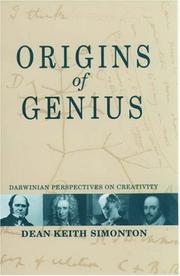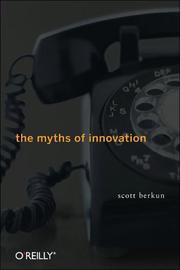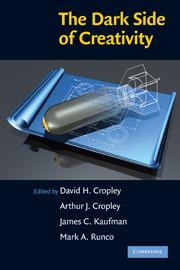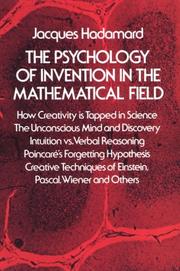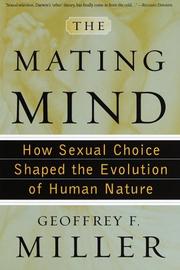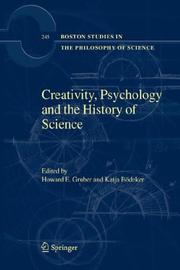Origins of Genius: Darwinian Perspectives on Creativity - Dean Keith Simonton - ISBN 0195128796 - Oxford University Press - 1999
Motivation
Book recommended p. 188 of The Things We Do by Gary Cziko, 2000 : "These are just a few of the studies from the considerable (and growing) body of empirical research that supports a within-organism Darwinian theory of creative thought and behavior as suggested by Campbell. The reader is referred to Simonton's recent book (1999b) for a thorough treatment of this topic."
Pre-reading model
Draw a schema (using PmGraphViz or another solution) of the situation of the area in the studied domain before having read the book.
Reading
He doesn't study only genius in art or in science but in both saying that mainly the difference is about constraints of acceptance of the work but eventually the basic processes, especially in Kuhn's revolutionary aspect of science, could be very similar (and eventually also their socio-cultural origin). Charles Darwin is used constantly as an example in the entire book.
He mentions from the start the work of Campbell, also Popper and Khun, Lorenz and the current of Evolutionary Epistemology in general.
He distinguishes (p8) two kinds of Darwinism :
- the primary : "comprises Darwin's theory of biological evolution, along with the many scientific developments extending from this theory to explain the diverse features of living organisms."
- the secondary. "has to do with the explanation of other phenomena not directly related to biological evolution."
(Or the equivalent of Cziko's extended Darwinism? Dawkins' Universal Darwinism?)
So far (Im just through half of it)... it has been a bit like "it could be this, it could be that but in all case it looks like some special situation exist so... work hard!" :-#
If you have a bit of psychological disorder and come from a educated wealthy family and one of your high achieving parent died before you were 20 or so and you are the firstborn... you might be on the right path.
Several times he questioned the idea of measuring only the amount of offspring as a realistic quantification in human success. Yet, he doesn't really propose that the social position, wealth or something related could be a better indicator.
Also one of they key factor for an artist, a scientist or even a child, in all those situation somebody try to find recognition amongst his peer either by a natural advantage or by differentiation. In a way, differentiation seems to be very close to the concept of added value.
He repetitively underlines the constant ratio of work produced / famous work, suggesting also that fame could bias the analysis of past works by discarding the bad work and praising heavily the rest.
- Price law : "if k represents the number of creators active in a given domain, then sqrt(k) gives the number of those who can be credited with roughly half of the products in that domain" (p150)
- Lotka law : "states that the number of individuals who contribute exactly n products will be inversely proportional to n2" (p150)
He proposes his own model in order to have :
- type of creativity based on the objective (science/art/classical/revolutionary) and thus how much differentiation is required
- prediction of of the creative works over the time of a creative scientist or artist
unfortunately there is no inline reference to data or the mathematical model, just resulting generic curves. In the end he doesn't really develop how such a model could be use. To make better investment in schooling? Driving higher potential kids further?
Distinction between r/K reproductive strategies (p190) and the consequent productive strategy that could be used, inspired from mathematical models of population biology :
- r : rate of population increase
- K : carrying capacity of the environment (the size of the population that can be supported)
Basically r-type producing a large amount of offspring but investing very little on individual education vs K-type producing fewer offspring but raising them more carefully.
In chapter 5 (p172) he introduces the idea of "multiples" or how discovery can be made independently yet during the same period (several examples Table 5.1). He then directly says p176 that "Rather than being the products of the individual mind, multiples are said to prove that creative ideas are the effects of the Zeitgeist, or spirit of the times."
He introduces (p206) after a long study of groups and nearly avoiding risk subject like eugenics (evoking Galton, Kroeber or Spencer and the Nazi Germany projects) a potential "Darwinian Zeitgeist" composed of :
- Domain Activity
- Predecessors
- Contemporaries
- Aharon Kantorovich's Scientific Discovery seeing the whole scientific community as a selector but also a mutator (p209)
- David Hull's Science as a Process seeing the science community as both competitive (between labs) and cooperative (within labs) (p210)
- "external" sociocultural process most likely to have an impact on the own individual "internal" process, creating a associative/selective mindset merely by interaction with the environment (p210)
- Intellectual Receptiveness
- the risk of economical contraction
- Ethnic Diversity
- agreeing with Richard Florida and his description of the ideal conditions for the Creative Class
- Political Openness
- potential different impact between war within a country (severely restricting the scope of innovations) vs war outside of the country vs peace
- Gender
- Sexual Dimorphism and Selection
- "In fact, the augmented intellectual abilities of both genders would quickly become preadaptations (or exaptations) that would later be co-opted for purposes besides winning mates. The most prominent spin-off would be the rapid evolution of human culture, which provided a totally new basis for adaptations." (p218)
- Gender Socialization and Stereotypes
- description of the consequences of familial involvement and the pursuit of a more creative goal for both sexes
- Cultural Evolution and Genius
- "It should now be clear that of the three social groups just discussed -race, culture, and gender- it is culture that may assume the largest place in a Darwinian theory of creativity." (p221)
- Spencerian Progress
- "organic evolution was a progressive phenomenon. Lower forms evolved into higher forms, starting with the simple unicellular organisms and culminating in Homo sapiens." (p222)
- "Species and cultures both advance by means of the organized division of labor. That is, progress consists in the formation of specialized subunits coordinated by some structural and functional system." (p222)
- Darwinian Change
- evolution is not invariably upward in its trajectory
- "Even the most exalted geniuses, under this view [building niches], are only doing what everyone else is trying to do: find a place for themselves in the natural and social world into which they were born." (p234)
- discussion on the arm race and group competition as a drive for creativity to maximize adaptative fitness (p235)
- very interesting paragraph to eventually integrate in the drive page
- evolution pace being itself a key competitive advantage : "Yet since extinction is an even worse outcome, interspecies competition can favor the emergence of mechanisms that can accelerate the evolutionary process. Whichever species evolves the fastest may win, or at least not lose." (p236)
- finally making a simulation based on population size, Simonton seems to suggest that genius, like the emergence of life, is a matter of chance on large numbers and thus on population growth (p239-240)
- Prospects for a Darwinian Synthesis
- author doubting the quality of the very chapter to conclude that dual-inheritance theories "human behavior is the joint manifestation of both genes and memes, simultaneously coevolving in complex interactions across the history of our species" could be the most promising way to integrate primary and secondary Darwinism in an unified framework to study creativity (p241)
Finally, the last chapter sums up the entire book, synthesizing each part, evaluates the entire work and concludes that there is yet no unified theoretical framework but that existing models stay extremely valuable.
See also
Overall remarks and questions
Synthesis
So in the end, it was about X and was based on Y.
Critics
Point A, B and C are debatable because of e, f and j.
Vocabulary
(:new_vocabulary_start:)
bespeak
dearth
protean mind
(:new_vocabulary_end:)
Post-reading model
Draw a schema (using PmGraphViz or another solution) of the situation of the area in the studied domain after having read the book. Link it to the pre-reading model and align the two to help easy comparison.
Back to the Menu
Other read books linking to the OriginsOfGenius page :
Back to the Menu
 Fabien Benetou's PIM
Fabien Benetou's PIM






